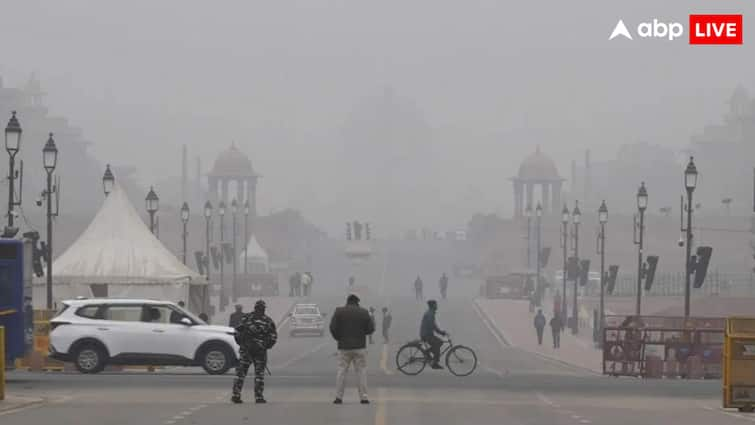
2020 ties 2016 as hottest year on record, even without warming boost from El Niño
LA TimesCrowds in Huntington Beach during a triple-digit heat wave on Labor Day weekend 2020. Last year’s average global surface temperature was 2.2 degrees Fahrenheit above the late 19th century average, according to NASA. The fact that the planet’s average temperature reached such heights — absent the short-term warming effect of El Niño — reveals the unmistakable signal of human-caused greenhouse gas emissions, researchers said. “It shows that five years of human CO2 emissions can have nearly as large an impact on global temperatures as a super El Niño event, and reinforces the fact that our emissions are what is driving the rapid warming of the planet over the past few decades,” Hausfather said. “That’s why what was a super El Niño event two decades ago, in 1998 for example, would be a remarkably cold year today.” NASA, the National Oceanic and Atmospheric Administration and other research organizations that compile global temperature rankings rely on much of the same data, including measurements from weather stations, ships and buoys spread across the planet.
History of this topic

Rising temperatures, deadly heatwaves: How 2024 became the hottest year on record
India Today
2024 set to be warmest year on record: European climate agency
Deccan Chronicle
Last month was the second hottest November on RECORD: Global average temperatures hit 14.10°C - and scientists are 'effectively certain' that 2024 is going to be the warmest year ever
Daily Mail
2024 on its way to being the hottest year ever, break record set in 2023
India Today
EU climate monitor says 2024 ‘certain’ to be hottest year on record
Al Jazeera
2024 Is 'Virtually Certain' To Be Hottest Year On Record, Climate Agency Says
Huff Post
2024 'virtually certain' to be hottest year on record: EU climate agency
Raw Story
2024 will be world's hottest on record, EU scientists say
The HinduEuropean climate agency says this will likely be the hottest year on record — again
Associated Press
2024 is 'virtually certain' to be the hottest year on RECORD - and the first year above 1.5°C, scientists say
Daily Mail
2024 is 'virtually certain' to be the hottest year on RECORD - and the first year above 1.5°C, scientists say
Daily Mail
Earth is likely to have its hottest year on record – again
The Independent
August 2024 Was The Hottest Summer On Record On This Earth, NASA Says
ABP News
Earth has endured its hottest summer ever recorded — for the second year in a row
Salon
Summer 2024 was the hottest on RECORD: Average global temperature was 0.69°C above average - and scientists say climate change is to blame
Daily Mail
As California swelters, climate officials declare Summer 2024 the hottest on record
LA Times
Record summer temperatures set world on course for hottest year ever
Al Jazeera
World records hottest August with 2024 poised to be warmest year: EU climate agency
China Daily
Last month was the second-hottest July on RECORD - only 0.04°C lower than the previous high set in July 2023, figures reveal
Daily Mail
July marks second-hottest month on record worldwide: EU climate agency
China Daily
July 22 was Earth's hottest day in all recorded history | Why blue planet is witnessing extreme temperature?
India TV News
World’s hottest day recorded on Sunday, climate monitor says
Al Jazeera
Summer 2023 was the hottest in past 2,000 years: Study
Hindustan Times
Summer of 2023 was hottest in 2,000 years, study finds
LA Times
April 2024 was hottest on record, marking 11 months of new highs
The Independent
Warmest April on record extends planet’s hot streak to 11 months
LA Times
April 2024 warmest ever on record as temperature continues to soar globally: European climate agency
India TV News
Planet endures record-hot April, as scientists warn 2024 could beat heat records for second year in a row
CNN
And the heat keeps coming: Global temperature record broken for 10th month in a row in March
LA Times
‘Humbling, and a bit worrying’: Scientists fail to fully explain record global heat
LA Times
World Meteorological Organisation confirms 2023 as ‘hottest year’
The HinduLast month was hottest February ever recorded. It’s the ninth-straight broken record
Associated Press
Global hot streak continues: February was Earth’s warmest on record
LA Times)
2023 El Nino among 5 strongest on record, will fuel heat in 2024: Report
Firstpost2023-24 El Nino among five strongest on record, will continue fuelling heat in 2024: WMO
The Hindu
Earth surpassed 'doomed' 2.7F global warming limit for the first time in 2023 - which scientists say was hottest in 100,000 years
Daily Mail
January was world’s warmest on record, say EU scientists
Live Mint
January 2024 was hottest on record with 1.7°C temperature surge
Live MintEarth's warmest January on record extends run of unprecedented temperatures to eight months
ABC
2023 officially warmest year on record by a huge margin, World Meteorological Organization confirms
The Hindu
2023 Was One Of The Coldest Years Of The Rest Of Your Life
Huff PostScientists explain why the record-shattering 2023 heat has them on edge. Warming may be worsening
Associated Press)
In Graphics | Why 2023 was the hottest year on record
FirstpostEarth's hottest year was 2023. Here it is in graphs and photos
ABC
2023 confirmed as hottest year ever as climate records ‘tumbling like dominoes’
The Independent
2023 was the warmest year on earth since 1850, says EU’s climate change agency
Hindustan Times2023 was world's hottest year on record, EU scientists confirm
The Hindu
2023 was officially the hottest year on RECORD - with global temperatures close to the 1.5°C limit, scientists warn
Daily Mail
Earth reaches grim milestone: 2023 was the warmest year on record
LA Times
2023 shatters record for world’s warmest year: EU climate agency
Al JazeeraDiscover Related








)





)















